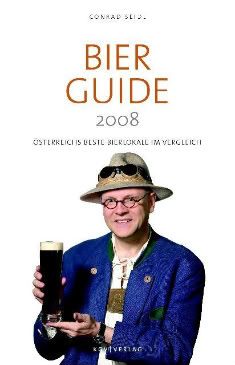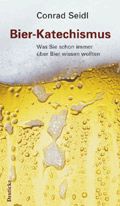Kleinen Brauereien fehlt oft die Differenzierung
Grundannahme ist, dass der österreichische Biermarkt schrumpft - der Pro-Kopf-Verbrauch wird von derzeit 108 in den nächsten zehn Jahren auf 90 bis 100 Liter zurückgehen, was im internationalen Vergleich immer noch hoch wäre. Ursache für diese Schrumpfung sind veränderte Konsumgewohnheiten, speziell in der Gastronomie: "Wenn es zu einer noch stärkeren Diskussion über das Rauchen, eventuell auch über Alkoholwerbung kommt, wird der Gastronomiebereich noch weiter leiden", sagt Unger. Generell sinke die Anzahl der Anlässe, an denen Bier getrunken werde - "es macht heute fast einen negativen Eindruck, wenn man zu Mittag ein Bier bestellt." Zudem werde bei den verbliebenen Anlässen weniger Alkohol konsumiert - nicht zuletzt, weil die potenziellen Biertrinker eben auch Autofahrer sind und ihren Führerschein in Gefahr sehen, wenn sie mehr als ein Bier trinken.
Für die Brauereien muss das nicht unbedingt zu Verlusten führen - denn neben dem wachsenden Billigsegment würden gut positionierte und gut unterscheidbare Premium-Biere mit zum Teil sehr hohem Preis etabliert werden.
Für mittelständische Brauer komme es aber auf die richtige strategische Positionierung an: Lokale Brauereien sollten ihr Sortiment straffen, stärker unterscheidbar werden als durch den gerne gepriesenen, aber letztlich austauschbaren lokalen Bezug und sich ganz auf die (tendenziell weiterhin hochpreisige) Gastronomie konzentrieren. Die Grösse der Brauerei ist demnach der wesentliche Bestimmungsfaktor der strategischen Ausrichtung - das richtig hinzubekommen sei entscheidend, um bei der zunehmenden Internationalisierung des Weltbiermarktes bei gleichzeitiger Stagnation des heimischen Biermarktes sowie den Veränderungen im Konsumverhalten langfristig erfolgreich zu sein.
Auch regionale Brauer seien besser beraten, den regionalen Radius einzugrenzen und ihr Engagement im (hoch konzentrierten und daher marktmächtigen) Lebensmittelhandel einzuschränken. Dies trotz der Verlockung, dass etwa das Dosenbiersegment wächst und sich Marktanteile nach und nach von der Gastronomie zum Heimkonsum verschieben. Die Alternative, sich dem Lebensmittelhandel auszuliefern, werde oft mit geringerer Profitabilität erkauft, warnt Unger: "Ich sehe immer wieder, dass lokale oder regionale Brauereien sich national engagieren - dass man bei relativ kleinem Mengenanteil schwer auf vernünftige Gewinnspannen kommt, ist klar. Denn da explodieren die Marketing- und Vertriebskosten sehr schnell."





